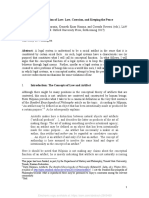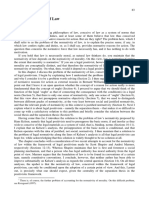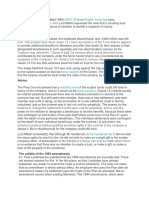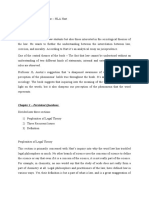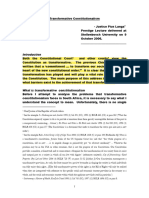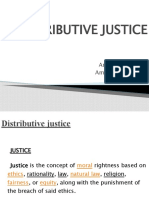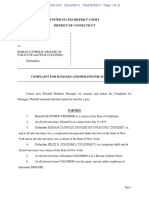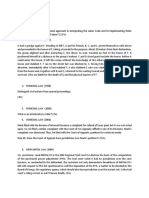0% found this document useful (0 votes)
222 views26 pagesIntroduction to Utilitarianism
Utilitarianism is a moral theory developed by Jeremy Bentham and John Stuart Mill that argues an action is right if it produces the greatest balance of pleasure over pain for the greatest number of people affected. The document outlines Bentham and Mill's formulation of utilitarianism, including how they define pleasure and pain, and discusses criticisms of the theory such as how it seems to disregard concepts like rights and individual responsibility.
Uploaded by
Krupa PatelCopyright
© © All Rights Reserved
We take content rights seriously. If you suspect this is your content, claim it here.
Available Formats
Download as PPT, PDF, TXT or read online on Scribd
0% found this document useful (0 votes)
222 views26 pagesIntroduction to Utilitarianism
Utilitarianism is a moral theory developed by Jeremy Bentham and John Stuart Mill that argues an action is right if it produces the greatest balance of pleasure over pain for the greatest number of people affected. The document outlines Bentham and Mill's formulation of utilitarianism, including how they define pleasure and pain, and discusses criticisms of the theory such as how it seems to disregard concepts like rights and individual responsibility.
Uploaded by
Krupa PatelCopyright
© © All Rights Reserved
We take content rights seriously. If you suspect this is your content, claim it here.
Available Formats
Download as PPT, PDF, TXT or read online on Scribd
/ 26


















